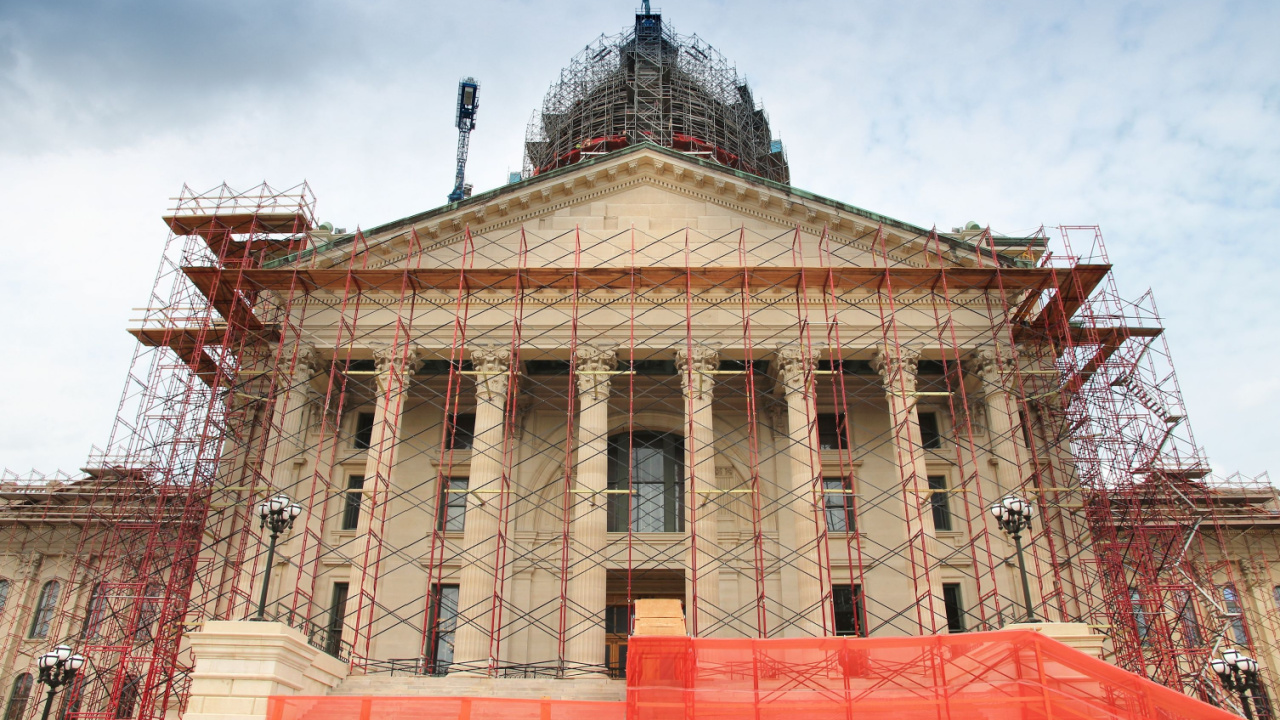
Merit Shop Construction and the 2019 Labor Agenda
Now in its third year, the Trump administration has continued to push ahead with pro-business deregulation on a number of important labor issues, though several court decisions have slowed the pace and created uncertainty. Much still remains to be done to reverse the holdover effects of the previous administration’s anti-business agenda, and progressive legislators in the House of Representatives are attempting to interfere. Nevertheless, the administration’s labor agencies are generally succeeding with their deregulatory agenda.
NLRB Engages in Rulemaking to Restore Balanced Labor Relations
Following up on several decisions reversing pro-labor rulings under the Obama administration, the National Labor Relations Board has turned to rulemaking to clarify and narrow the so-called “joint employer” standard.
In January, the NLRB issued a proposed rule to that effect and received thousands of comments from the public on all sides of the issue. An appeals court decision in the Browning-Ferris Industries case complicated matters further by partially affirming, but also reversing, the NLRB’s overbroad joint employer standard. The current NLRB is expected to issue a final joint employer rule sometime this year.
Meanwhile, the NLRB remanded a large number of cases in late 2018 dealing with handbooks and workplace policies, in light of the board’s ruling in the Boeing case broadening employer rights to impose reasonable work rules. Significant decisions are expected in 2019 dealing with policies such as confidential workplace investigations and employee use of business communications.
The number of unfair labor practice charges and union elections has declined during the Trump administration, notwithstanding the 2015 “quickie” election rules enacted during the Obama administration, which remain in place.
DOL Proposes ‘White Collar’ Overtime Rule Change
In March, the U.S. Department of Labor issued a new proposed rule increasing the minimum salary threshold for “white collar” workers exempt from being entitled to overtime, from $22,500 up to $35,309 annually. The increase was substantially less than had been ordered by the Obama administration in 2016, and is generally viewed positively by the business community.
Associated Builders and Contractors, along with many other business groups, sued the DOL in federal court and succeeded in blocking the 2016 Obama overtime rule from taking effect. The new proposed rule has been the subject of public comments (for and against), but is expected to become a final rule by the end of 2019. The DOL has also issued new proposed rules dealing with regular rates and joint employer status, which are generally viewed as reducing burdens on construction industry employers.
OSHA Partially Rescinds Injury Reporting Rule
OSHA initiated another significant deregulatory effort in its final rule partially rescinding the Obama administration’s changes to the injury reporting rule.
Published on Jan. 25, the new rule withdrew the previous order requiring employers to publicly report their OSHA 300 and 301 injury reporting logs.
OSHA’s new rule, together with new guidance documents, also clarified that certain anti-retaliation language in the previous rule does not prohibit employers from routinely requiring drug tests following workplace accidents and from awarding incident-based safety incentives to employees.
There remains some continuing uncertainty over the new rule, however, as Public Citizen and other progressive organizations have sued to reinstate the Obama public reporting requirements of the previous rule. That case remains pending and probably will not be resolved until 2020.
Court Battles Slow Deregulatory Efforts
In January, a federal judge ordered that the EEOC’s so-called “wellness” rules be vacated because of alleged inconsistencies with the Americans with Disabilities Act.
In March, another federal judge issued an order forcing the EEOC to implement a new EEO-1 form requiring employers of more than 100 employees to include pay data showing discrepancies among “bands” of workers based on sex and minorities.
The Office of Management and Budget previously found the revised EEO-1 form was unduly burdensome for employers, without achieving any meaningful benefit, in violation of the Paperwork Reduction Act.
Also in March, a federal judge struck down the Trump administration’s new rule allowing employer associations to form lower cost health plans. The court found the new Association Health Plan rule made an end run around the prohibitions of the Affordable Care Act and therefore could not be allowed to stand.
Labor Battles Shift to Blue States and Localities
As the Trump administration’s deregulatory efforts have gained ground in the past two years, the focus on labor battles imposing new burdens on employers has moved to progressive state and local governments, primarily on the East and West Coasts.
Among the issues being litigated around the country, particularly in California and New York, are expansion of anti-harassment requirements in light of the #metoo movement, increased paid leave requirements, increasing the minimum wage, legalization of marijuana, new predictive scheduling laws and other changes in laws governing the construction workplace.
Government-mandated project labor agreements, prevailing wage laws, apprenticeship mandates and responsible contractor ordinances also continue to limit competition and increase construction costs in a minority of states, even as a majority of states now prohibit such wasteful practices or simply do not engage in them.
President Obama’s executive order encouraging PLAs remains in effect, and rescission of this wasteful order is long overdue.
Related stories








